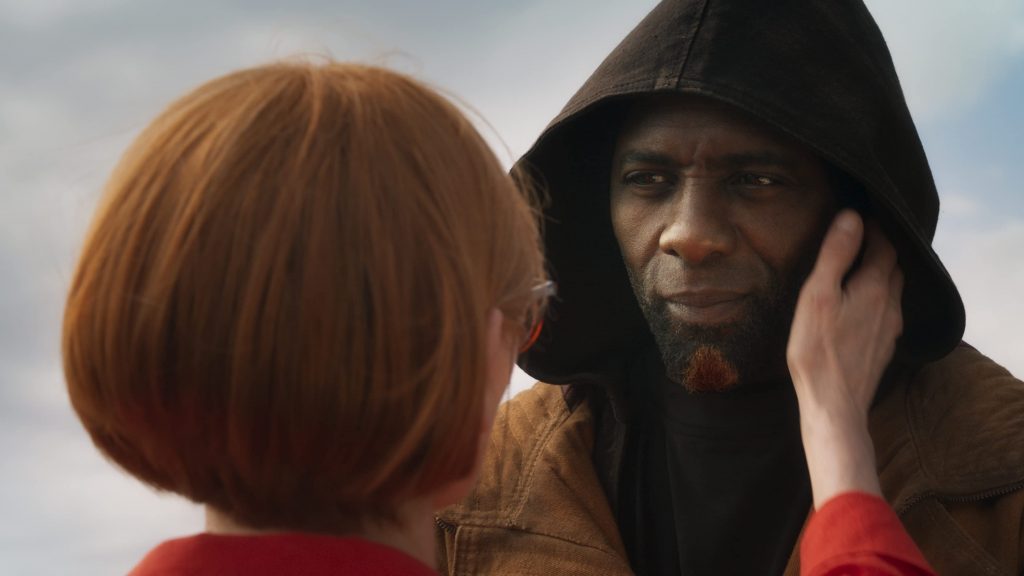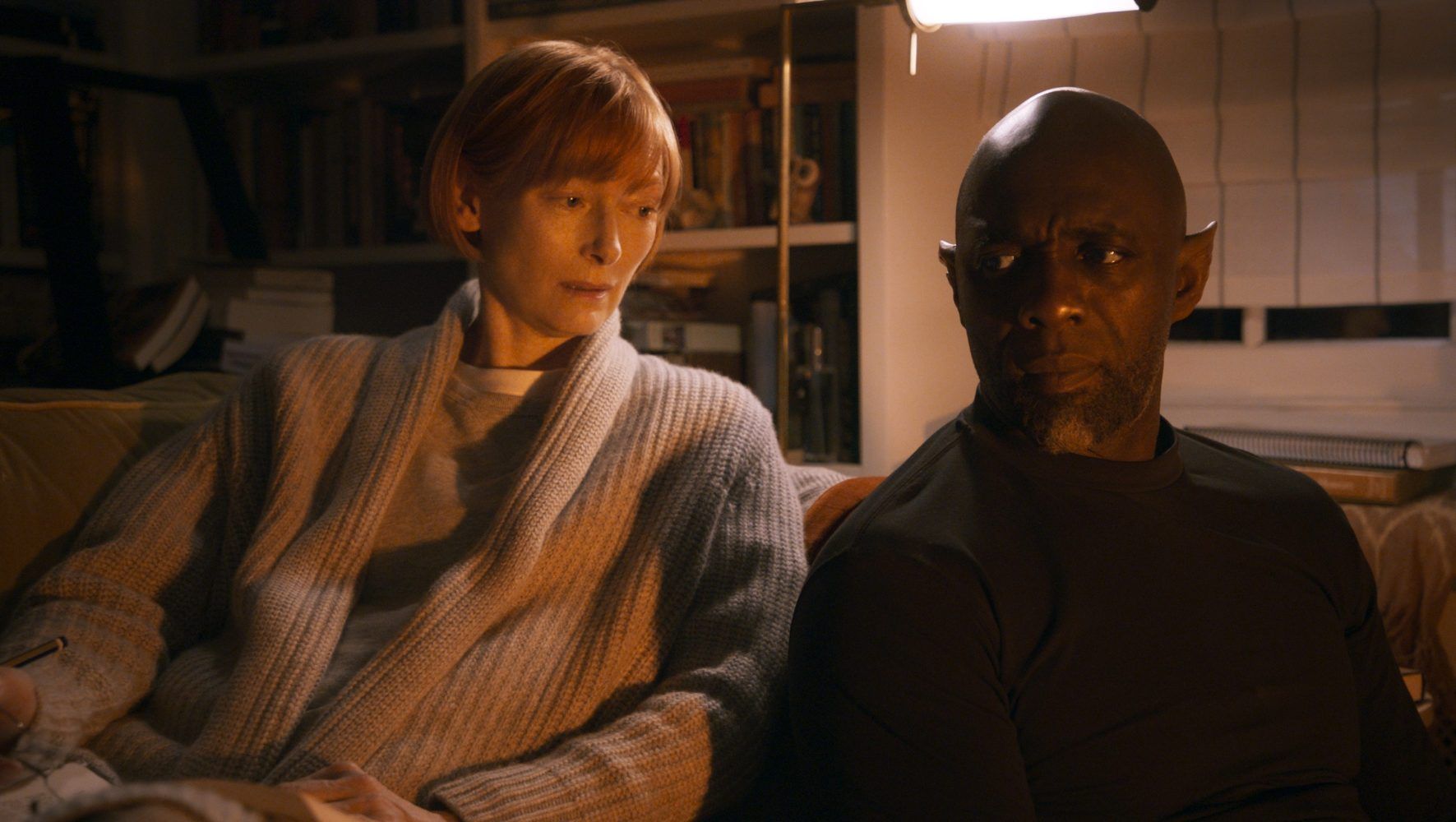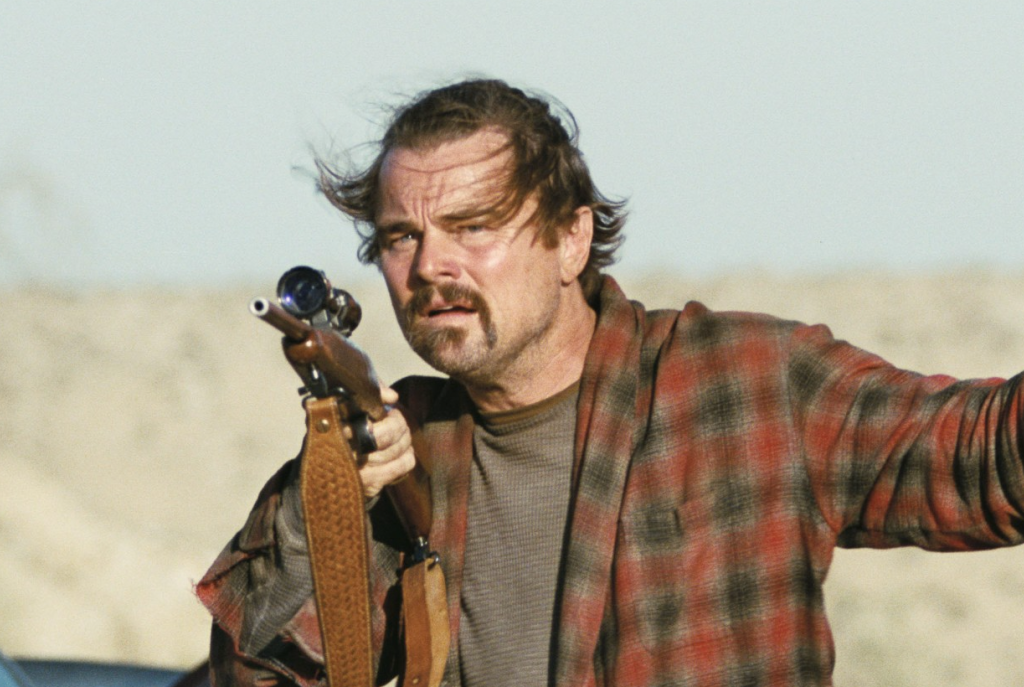“My story is true,” she says, right up front. “You’re more likely to believe me, however, if I tell it as a fairy tale.” Her name is Alithea, and when we meet her, she’s happily independent in her life and career as an academic – as a “narratologist,” to be precise, as in one who studies the telling of stories (and what their telling tells us about ourselves). She’s in Istanbul for a conference when she starts seeing strange, inexplicable things – and that’s before she picks up the bottle in the antique shop. Later, while cleaning it in her hotel room, she unleashes the Djinn (Idris Elba), who informs her that, yes, he is there to grant her three wishes, anything her heart desires. He begins to run down the rules, but he doesn’t need to; “I’m familiar with the concept,” Alithea tells him.
This is the set-up for George Miller’s Three Thousand Years of Longing, but it’s not really what the movie’s about, because God knows we’ve all seen enough movies about genies and their three wishes, which Miller (and co-writer Augusta Gore, adapting A.S. Byatt’s short story) knows. The real subject of the picture is storytelling, and that’s also its main activity; Alithea is understandably curious about how the Djinn wound up in her hotel room, and in that bottle before it, so he tells her of his adventures (“Well, it’s quite a story,” he tells her, which is an understatement) and he asks about hers (“It’s not much of a story,” she insists, to his reply, “But it is a story. It’s your story”). And so it is perhaps appropriate that this all happens within the three-wishes story, because it is one of the most frequently told of all. And as connoisseurs of storytelling, they both recognize the truth: “There’s not a story about wishing that is not a cautionary tale.”
Considering its fantastical premise and preponderance of eye-popping effects, it’s sort of charming that so much of the film is spent on two people in cozy bathrobes, chatting in a hotel room. But the rest of the picture is the exact opposite of that, a wildly gonzo work of anything-goes glee. Some of the stranger detours don’t quite land, but the film never lacks in ambition, and that’s nothing to dismiss.
Swinton is, as ever, fun to watch, even if she’s doing a variation on what has become her regular thing. Even better, this is one of scant few occasions on which the big screen has captured what makes Elba such a special actor – his mixture of charisma, intelligence, and sincerity, the simple sadness with which he confesses, “I made a mess of it,” the straight-forward way he asks her, when she finally makes her first wish, “Is it your heart’s desire?” It’s a wonderful performance.

But this is Miller’s show, a 108-minute combination of flex and sizzle reel. The sheer mastery of craft on display is frankly breathtaking – the ingenuity of the compositions, the inventiveness of the transitions, the deft and textured use of sound all combine to form that rarest of beasts, big canvas filmmaking with genuine personality. The costume and production design are ornate and delightful, but the picture never feels out of Miller’s control; even in its most supple sequences, he fills the frame with tiny, clever throwaway props, beats, and gags.
If only it ended as well as it begins. Miller and Gore’s script takes a third act turn that they can barely navigate – it just comes out of nowhere, and the chemistry required to pull it off simply hasn’t been present. Once he takes that turn, Miller can’t quite figure out how to end it in a way that makes both logical and emotional sense, and that flaw is particularly glaring in light of an especially weak epilogue that undercuts whatever poignancy is generated.
But – and apologies if this sounds like a cop-out – one cannot review Three Thousand Years of Longing under the same rubric as any other late summer movie. George Miller has been making movies since 1979, but most of them have been Mad Max, Babe, or Happy Feet films; in fact, the last time he worked outside of one of those franchises was thirty years ago, in Lorenzo’s Oil, which was based on a true story. None of this is to diminish those films, which are wild and ambitious, but they’re franchise films nevertheless, beholden to all that entails. So what makes Three Thousand Years so special is the chance, at long last, to see what Miller can do with these tools of outsized, free-form storytelling, when he’s bound by nothing, and can go anywhere, and do anything. It’s quite something.
B+
“Three Thousand Years of Longing” is in theaters Friday.



